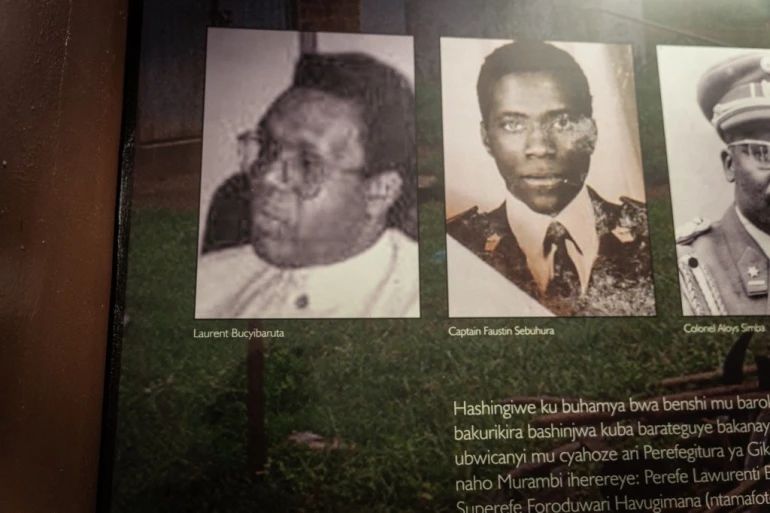by Staff Writer
AFP
07/12/22

A picture of Bucyibaruta at the Murambi genocide memorial in Nyamagabe, Rwanda. Photo: Simon Wohlfahrt/AFP
Many Rwandans have been convicted for acts related to the 1994 genocide by domestic courts, international ones or those in Western countries.
A French court on Tuesday jailed for 20 years Laurent Bucyibaruta, the highest-ranking Rwandan official, to have faced trial in France over the 1994 massacres in which an estimated 800,000 Tutsis and moderate Hutus died in 100 days of mass killings.
AFP takes a look back at previous convictions.
International Criminal Tribunal for Rwanda
The International Criminal Tribunal for Rwanda (ICTR) was set up by the United Nations in 1994 in Arusha Tanzania just months after the genocide in which an estimated 800,000 people, most of them ethnic Tutsis, were killed.
In September 1998 it became the first international tribunal to hand down a conviction for genocide. The court issued dozens of rulings, from life sentences to acquittals, before closing in late 2015.
Its work was taken over by the Mechanism for International Criminal Tribunals (MICT) office in Arusha, where the overall MICT chief prosecutor, Serge Brammertz, is based.
Felicien Kabuga, an alleged financier of the genocide, is due to be tried “as soon as possible” at The Hague after a UN court ruled in June that he was fit to stand.
Kabuga, arrested near Paris in 2020 after 25 years on the run, is accused of helping to create the Interahamwe Hutu militia, the main armed group involved in the massacres, according to the UN.
Rwandan justice
Rwanda started trying genocide suspects in 1996 and on a single day in April 1998 had 22 executed by firing squad.
It abolished the death penalty in 2007, lifting the main obstacle for the ICTR to transfer genocide suspects to the Rwandan judiciary for trial.
Since 2017, three defendants who have returned to Kigali have received life sentences.
Between 2005 and 2012, more than 12,000 “gacaca” grassroots courts put nearly two million people on trial and convicted 65 percent, sending most to prison.
Western courts
In 2001 a Brussels court sentenced four Rwandans, including two Catholic nuns, to 12-20 years in prison for “serious violations of international humanitarian rights” for providing the means for the killings or failing to intervene.
In 2005 two Rwandan businessmen were sentenced to 10-12 years in jail for war crimes and murder.
In 2007 a former Rwandan army major was convicted of “premeditated homicide” for his role in several killings, including of 10 Belgian peacekeepers who were protecting the prime minister.
In 2009 a Brussels court sentenced a Rwandan ex-bank director, dubbed the “genocide banker”, to 30 years in prison for murders and rapes during the bloodbath.
In 2019 former senior Rwandan government official Fabien Neretse was sentenced to 25 years in prison in the first conviction in Belgium that used the crime of “genocide”.
In France the first trial took place in 2014, two decades after the genocide. An ex-presidential guard member was sentenced to 25 years in prison.
To date three men have been definitively sentenced. A fourth, a former Franco-Rwandan hotel driver accused of having transported militiamen, appealed his conviction in 2021 to 14 years in prison.
In 2016 a Paris court sentenced two former Rwandan village mayors to life in prison for taking part in the genocide. The sentence was confirmed on appeal.
Since 2009, a dozen or so convictions have been handed down — most of them life imprisonment — in Sweden, Finland, Norway, Germany, the Netherlands, the US and Canada.
No comments:
Post a Comment